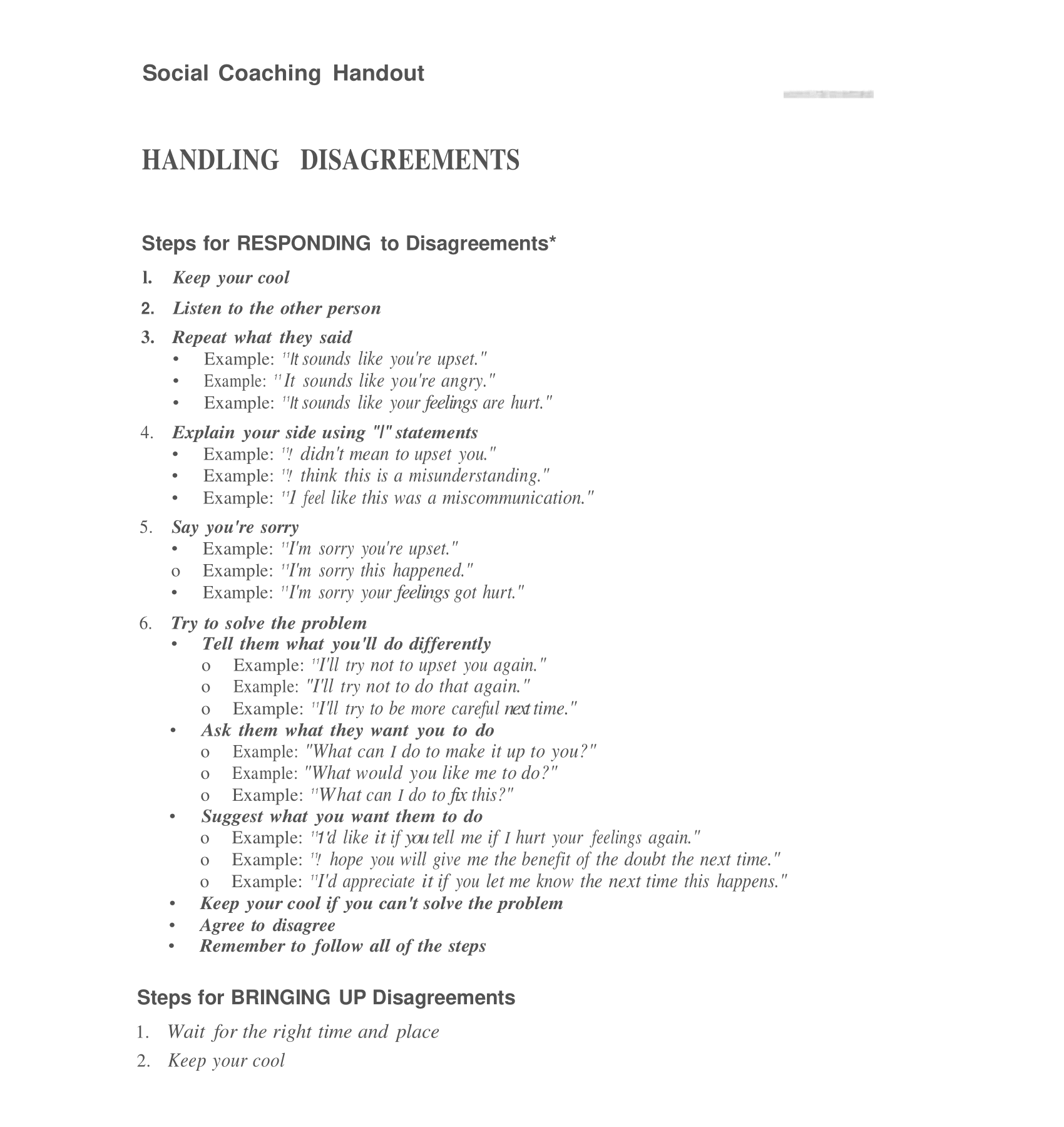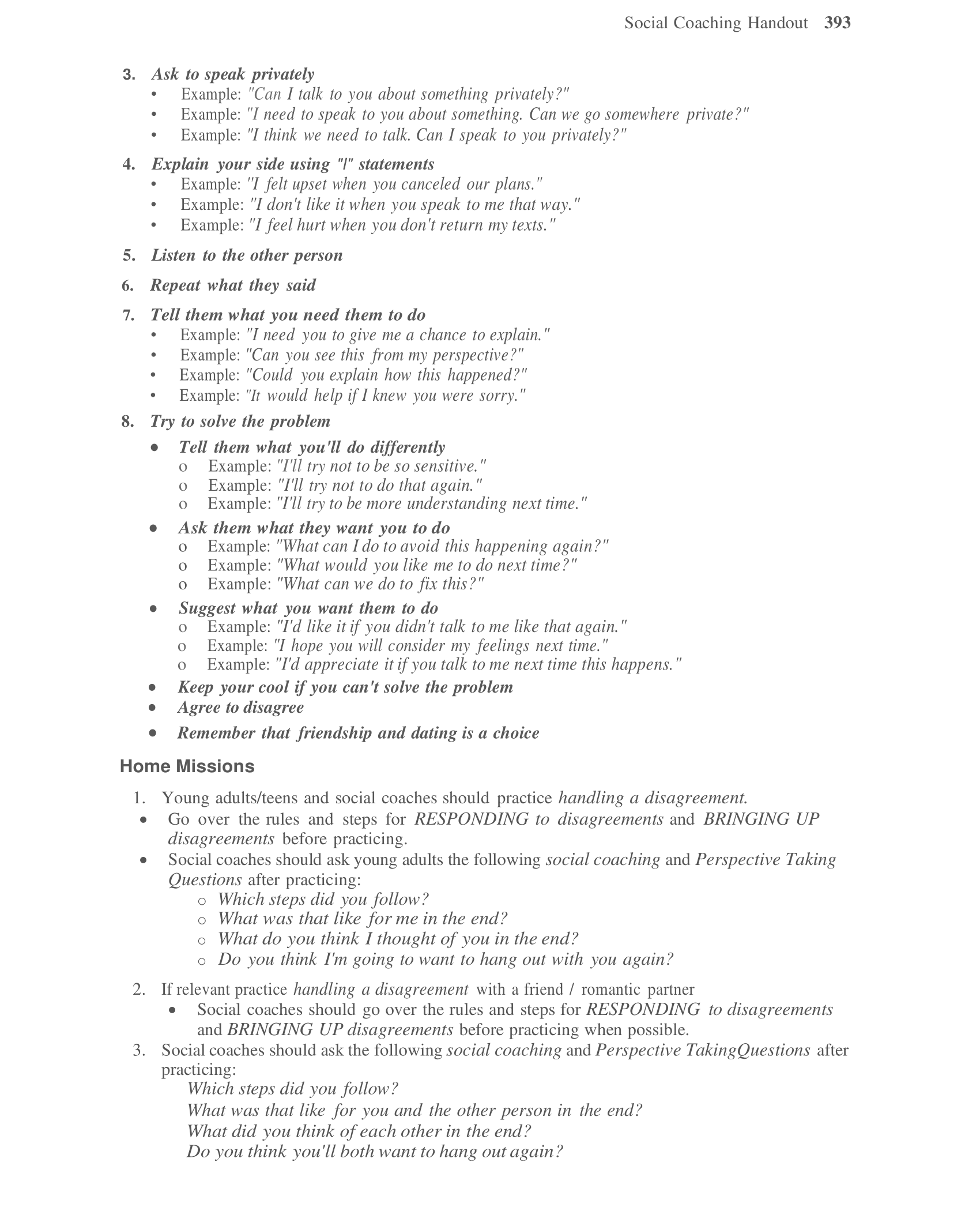Session #11
“Handling Disagreements"
(So important because we don't want small issues to break our friendships)

It is fairly common to have an occasional argument or disagreement with family, friends or others, but as a rule, they shouldn't have to mean the end of a relationship.
There are usually two positions we find ourselves in when a disagreement arises and this week we will explore these and the steps we should take to address the issue.
1. Steps for Responding To Disagreements:
- Keep you cool
- Listen to other people
- Repeat what they said
- Explain your side using 'I' statements
- Say you're sorry
- Try to solve the problem
2. Steps for Bringing Up Disagreements:
- Wait for the right time and place
- Keep your cool
- Ask to speak privately
- Explain your side using 'I' statements
- Listen to the other person
- Repeat what they said
- Tell them what they need them to do
- Try to solve the problem
- Remember friendship and dating is a choice
The Social Coaching Handout attached covers these steps in more detail.
Myth-busting: I should expect everyone agree with me all the time:
Not true! People will agree with us sometimes. At other times they will disagree and that is okay. We are allowed to have different opinions. We can still be friends even if we think that fairness doesn't happen every time.


